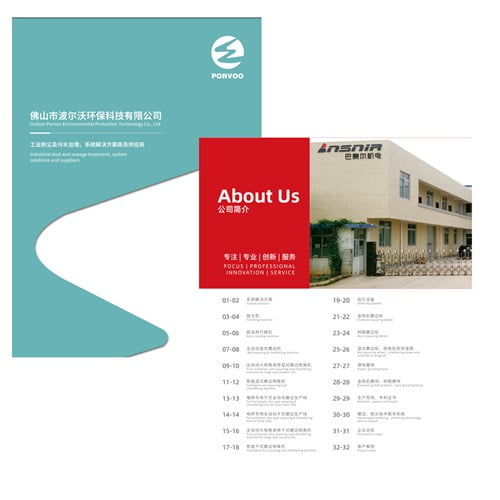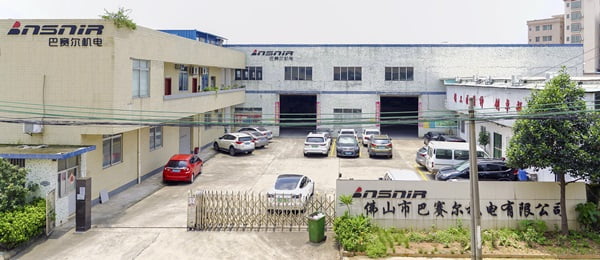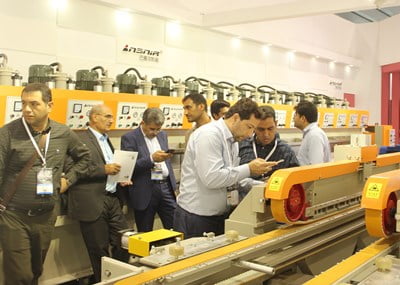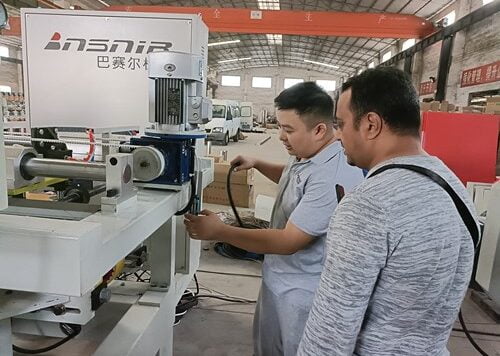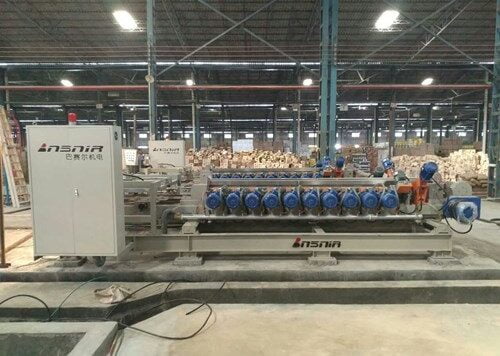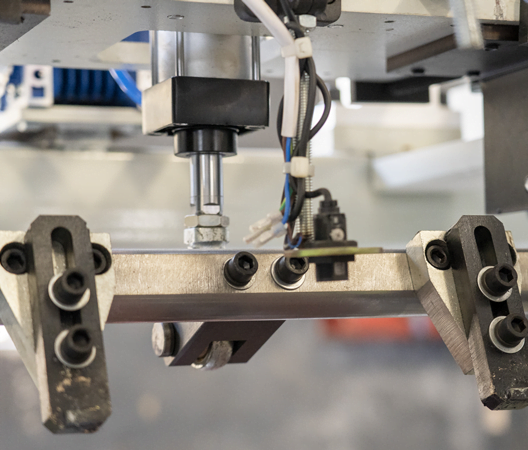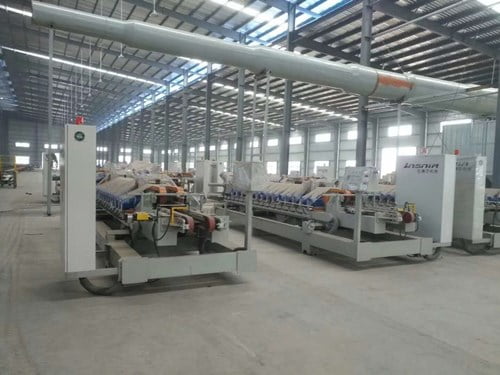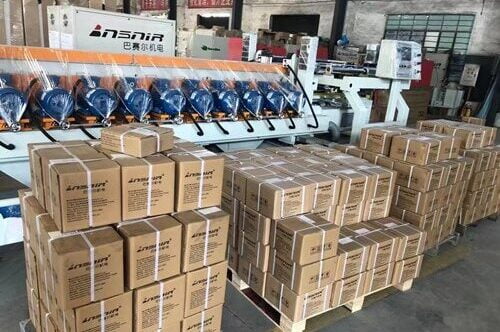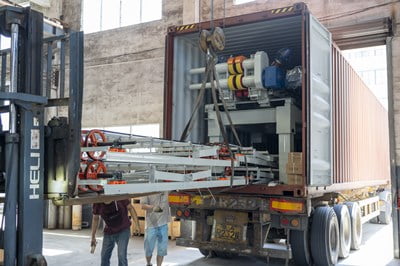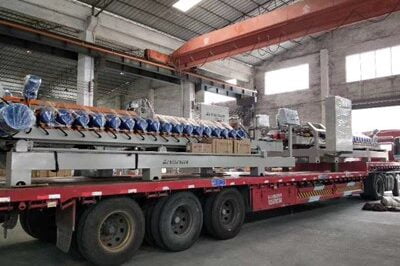Nella produzione di piastrelle di ceramica, precisione, efficienza e qualità sono fondamentali. Uno strumento che si distingue per il raggiungimento di questi obiettivi è la mola per squadrare a secco BASAIR. Ecco una guida completa per aiutarvi a comprendere le caratteristiche, i vantaggi e i tipi di queste ruote innovative.
Cosa sono le ruote di squadratura a secco BASAIR?
Le mole per squadrare a secco BASAIR sono utensili abrasivi speciali progettati per modificare e perfezionare i bordi delle piastrelle in ceramica senza l'uso di acqua. Questo approccio elimina problemi quali l'assorbimento dell'acqua, la muffa e lo scolorimento, rendendoli ideali per le piastrelle con un elevato tasso di assorbimento dell'acqua.
Caratteristiche principali delle ruote squadratrici a secco BASAIR
Efficienza ad alta velocità
- Progettate per funzionare a velocità elevate e sotto carichi pesanti, queste ruote riducono in modo significativo i tempi di fermo e di manutenzione, aumentando la produttività e riducendo i costi operativi.
Finitura superficiale superiore
- Grazie all'elevata forza di rettifica e all'eccellente controllo termico, le mole per squadratura a secco BASAIR garantiscono una finitura superficiale delicata e liscia, priva di scheggiature dello smalto e di bordi neri.
Personalizzazione e compatibilità
- BASAIR offre formulazioni personalizzate per diversi tipi di piastrelle ed è compatibile con diverse linee di produzione di squadratrici per piastrelle, tra cui KEDA, ANCORA, BMR e PEDRINI.
Tipi di ruote squadratrici a secco BASAIR
Ecco una panoramica dei diversi tipi di ruote squadratrici a secco BASAIR:
| Tipo di ruota | Descrizione | Applicazione |
|---|---|---|
| BSR-01 | Mola per sgrossatura con lunga durata, maggiore affilatura e buona dissipazione del calore. Quantità di avanzamento: 1-2 mm. | Fase iniziale della modifica del bordo della piastrella, adatta a piastrelle con basso assorbimento d'acqua e maggiore durezza |
| BSR-02 | Mola diamantata più fine utilizzata in combinazione con BSR-01. Quantità di avanzamento: 0,5-1,5 mm. | Controlla il collasso dello smalto e riduce il consumo delle mole successive |
| BSR-03 | Mola con legante in resina per processi di smerigliatura fine. Garantisce una superficie di lavoro liscia con segni di usura minimi. | Processi di rettifica e riparazione |
| BSR-04 | Più delicata della BSR-03, è adatta alla rifilatura dettagliata. Quantità di avanzamento: 0,01-0,1 mm. | Fasi finali della rifinitura dei bordi delle piastrelle |
Metodi di incollaggio
Le ruote di squadratura a secco BASAIR sono disponibili con due metodi di incollaggio principali:
Legame metallico
- Caratterizzati da elevata durezza e resistenza all'usura, sono realizzati miscelando polvere di rame metallico con polvere di diamante. Tuttavia, possono essere soggetti a segni di usura.
Legame con la resina
- Offre una superficie di lavoro più liscia e di minore durezza, ottenuta miscelando materiale resinoso con polvere di diamante. Ideale per i processi di smerigliatura fine e garantisce una minima resistenza all'usura.
Considerazioni chiave per la scelta della ruota giusta
Nella scelta della ruota di squadratura a secco BASAIR, considerare i seguenti fattori:
Materiale delle piastrelle
- I diversi materiali delle piastrelle richiedono diversi tipi di mole per la squadratura. I materiali più duri possono necessitare di mole dentate o segmentate, mentre i materiali più morbidi possono essere tagliati efficacemente con mole a bordo continuo.
Finitura desiderata
- La scelta dipende dalla finitura che si desidera ottenere sulle piastrelle. Per una finitura liscia e di alta qualità, sono ideali le mole a bordo continuo. Per un taglio più aggressivo, si consiglia di utilizzare mole dentate o segmentate.
Velocità di produzione
- Le linee di produzione ad alta velocità traggono vantaggio dalle mole segmentate grazie alla loro maggiore velocità di taglio e alle migliori capacità di raffreddamento. Le mole a disco continuo sono più adatte a operazioni di taglio più lente e precise.
Condizioni ambientali
- Considerare se le mole di squadratura verranno utilizzate in un ambiente asciutto o bagnato. Le mole di squadratura BASAIR Dry sono adatte per operazioni a secco senza refrigerante.
Conclusione
Le mole di squadratura a secco BASAIR sono una novità assoluta nel settore della produzione di piastrelle di ceramica. Grazie alla loro efficienza ad alta velocità, alla finitura superficiale superiore e alle opzioni di personalizzazione, queste mole assicurano che le vostre piastrelle siano prodotte con precisione e qualità. Che si tratti di piastrelle in gres porcellanato o in ceramica, BASAIR ha la soluzione perfetta per migliorare l'efficienza e la qualità della produzione. Investite nelle ruote di squadratura a secco BASAIR e provate la differenza nel vostro processo di produzione di piastrelle.

